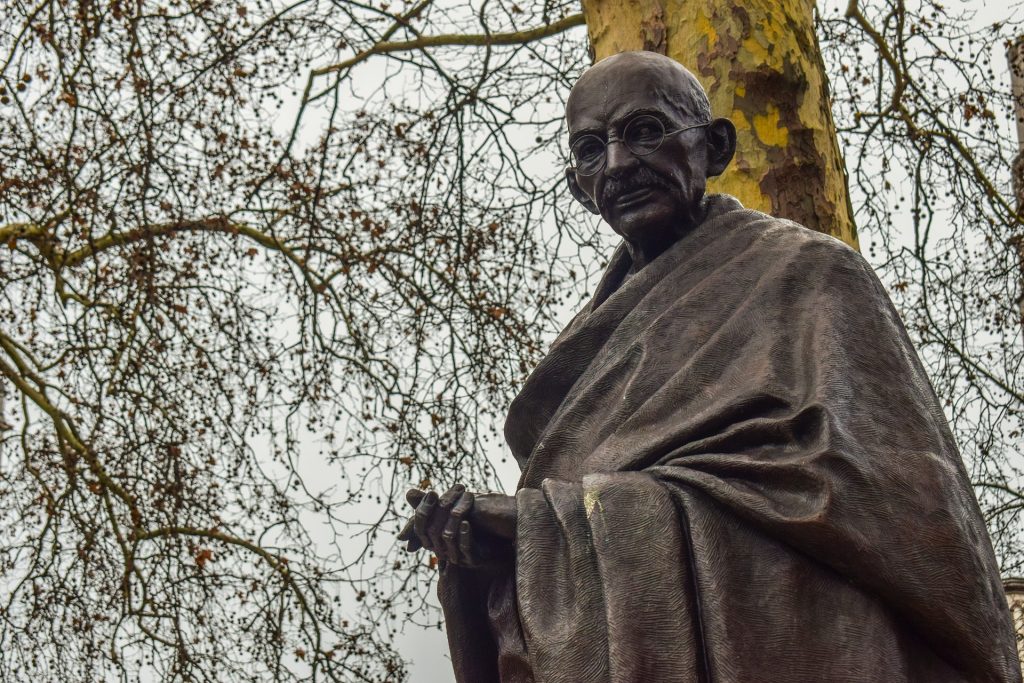
Do you know what happens next? This: “…they laugh at you, then they fight you and then you win.”(1) A sentence often quoted by politicians, the weight of which is increased by the reference to Gandhi and with which you can always make an impression. Thus the populist politician Frauke Petry felt inclined to twitter this quote on 24.09.2017 to the result of the Bundestag election. Hmm…. But actually people say it didn’t come from Gandhi himself but from the US-American trade unionist Nicholas Klein a good 100 years ago.
Quotations come from subjective truths
Quotes seem to have unlimited viability across times, spaces, ethnicities and cultures. As originally formulated subjective truths, they form a sediment of experiences, insights and perceptions that we can confidently regard as “truths” from humanity’s collective memory. They are universally attractive because their core statements can be transferred to the most diverse contexts. What connotations a quotation triggers is therefore always controlled by the context in which the quotation is placed.
The quote in my context…
I believe the behaviours of ignoring, laughing, fighting and winning listed in the quote can be observed everywhere individuals’ innovative ideas confront the majority’s collective conservative world view. This is, so to speak, the main denominator of human history and applied long before the quote was made. We can observe this phenomenon in its many forms in the economy and society on a daily basis. Examples include reactions to innovative technologies and products, organizational restructuring or operational mergers, ambitious projects, start-ups. But equally in the responses to divergent, surprising new world views and opinion leaders discussed and negotiated at various levels of discourse – from the political stage to the local pub. There is no lack of opportunities in this VUCA world.
…and it’s about change per se…
Following the quote, it seems obvious that anything new follows an inherent structure on its path to recognition and validity – unless it has already been shattered by the ignorance of reactionary diehards. So what is the intrinsic message? It is about attitude towards and the shaping of change per se! Or to put it more concretely: when we decide to strive for a new vision, achieve new goals or propagate something new in any way, we begin a process. Usually an arduous and lengthy one…
…and that’s what matters.
With a wider focus we can distinguish the actions of the “perpetrators” from the reactions of the “victims”. The former require a strong inner conviction that they have chosen the “right thing” and must exhibit this visibly to the outside world with persuasive power. They need courage, patience and perseverance to deal constructively and respectfully with arguments, hostility and ignorance on the playing field of different interests. In changes, not only time in the sense of duration (chronos) plays a role, but also the right time (kairos). Don’t many of today’s innovations originate from designs collecting dust in the bottom drawers? It is also important to distinguish between persistence and stubbornness. With stubbornness, innovation can only be achieved by force, which is ultimately not viable in the long run.
Change meets resistance
If we look at change from the perspective of the “victims”, every innovation, every change appears as a critique of the status quo, an attack on your own view of the world, an insult to the point of feeling that you have done everything wrong so far. This can endanger your identity and consequently triggers resistance. You no longer understand the world. “…then they fight you.” Logical, isn’t it? We should allow any change the necessary time and patiently hope that in the end good, whatever it may be, will prevail. No matter if perpetrator or victim, we should demonstrate openness for new things, but at the same time not irresponsibly leave the tried and tested behind us. After all, we should be aware that the diversity of new ideas and visions represents an enormous creative potential with which we can shape a viable future together – “…and then you win”.
Autor: PUE
Übersetzung ins Englische: BCO
Bildquellen
- mahatma-3938383_1920 (1): Mahatma / Pixabay

